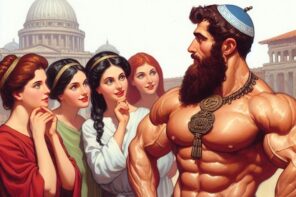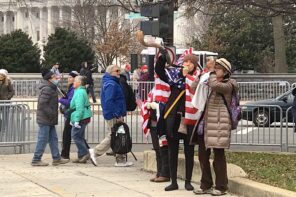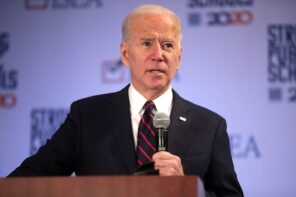From the ashes of Mt. Carmel, the largest forest fire in Israel’s history, a strange phoenix is rising: a clash of civilizations. It’s not between Israelis and Arabs, nor between Jews and Muslims. It’s a clash between two worldviews. Let’s oversimplify, for convenience, and call them “ancient” and “modern.”
The clash has flared up around the question of why the fire started. The moderns blame people and a drought-parched landscape. A couple of negligent kids playing with fire is the most popular theory (though their father insists they’re innocent). Then there’s a theory of multiple fires, some accidental and others arson. However the fires started, there’s a widespread view in Israel that the humans in charge of extinguishing it bear lots of blame for letting it go on too long.
The ancients have a more complex interpretation. Ultimately, they say, God is responsible for everything that happens in this world. So He must be the One who set Carmel ablaze. But He acted only in response to the behavior of Israelis who defied His will.
The fires were a “strike from Allah,” Gaza’s prime minister Ismael Haniyeh declared, “divine strikes for what [the Israelis] did… Allah is punishing them from a place they did not expect it.” The sketchy news reports in English did not explain what Israeli actions Haniyeh thinks Allah was punishing.
He was probably referring to Operation Cast Lead, the devastating attack on Gaza in late 2008 that left well over 1,000 Palestinians dead. He may well have been thinking, too, of Israel’s ongoing strangulation of the Gazan economy, preventing rebuilding from that war. And perhaps he was recalling the Israeli role in provoking the Palestinian civil war of 2007 (with US help), which deprived Hamas of the political control of the West Bank that it had won in democratic elections.
The Israeli daily Ha’aretz noted that “the Hamas strongman made the statements as he joined emergency prayers in Gaza City to ask for rain. He expressed hope rain would fall in the Palestinian territories, which like Israel, have been struck by an unprecedented dry season.”
Praying for Rain
But before Jews take too much offense at Haniyeh’s remarks, they should reckon with ancients of their own. Orthodox rabbis in Israel have been praying for rain, too, even before the dry-as-tinder forest was engulfed in flames. (A couple of PR-savvy rabbis took a beauty queen with them as they rose up in a hot air balloon to say their prayers, perhaps thinking that entreaties offered closer to heaven are more effective.)
And the drought has led some ancients to demonstrate the shared worldview that binds them together cross religious lines. In mid-November “Jewish, Christian, and Muslim religious leaders conducted a joint prayer for rain in the Muslim village of Wallaja,” since all assume that God must be responsible for the drought.
By the same logic, ancients among Jews as well as Muslims hold God responsible for the forest fire. Numerous ultra-orthodox newspapers editorialized, all agreeing that (as Mevaser put it) “The Heavens [i.e., God] caused the events and led them to such disastrous levels… The warning sign sent from above joins the previous warning sign, when we are already in the midst of drought. These warning signs are sent to wake us, to prod the sleeping from their sleep… Each one must come to conclusions and drive crookedness from his heart.”
Israel’s most prominent ultra-orthodox rabbi, Ovadia Yosef, had a more specific explanation: “Fire exists only in a place where the Sabbath is desecrated,” he read from the Talmud in his weekly sermon. “It is all divine providence,” he explained. “We must repent, keep Shabbat appropriately… and thanks to this God will apply a full recovery.” (The point was not lost on Israelis, who know that Haifa, the only city threatened by the fire, is also the only city where buses have run on Sabbath for many years.)
“May God Strike Them Down with a Plague”
So in this case it’s religion, not politics, that makes strange bedfellows. Ismael Haniyeh and Ovadia Yosef are snuggling under a similar theological blanket. But in the Middle East, religion is never severed from politics. The meaning of theological words depends upon their political context, and vice-versa.
It may be tempting to see the two leaders as political foes who are mirror opposites, much like George W. Bush and Osama bin Laden after 9/11; when each assured his people that God was on their side and demanded war against the enemy.
When religion meets politics, though, every situation is unique. Bush and bin Laden largely agreed on the nature of the sin, but they cast each other as the sinner. Haniyeh and Ovadia find themselves in the opposite situation: They agree that it’s the Israeli people who are the sinners, but they disagree profoundly on the nature of the sin. The Palestinian politician finds the sin squarely in the realm of his enemy’s political behavior. The Israeli rabbi finds it in his own people’s religious behavior.
Nevertheless, Ovadia Yosef is among the most powerful political leaders in Israel. In fact an Israeli columnist recently labeled him “Israel’s No. 1 Politician… a religious dictator who divides the world into good guys and bad guys in line with conservative, religious worldviews, and who within Israel’s democracy holds greater decision-making power than any minister elected by the public.”
Ovadia wields his political power through the Shas party, which now holds the deciding vote in the Israeli cabinet debate about extending the moratorium on settlement expansion. “We will either oppose it or abstain from voting, depending upon the decision of Rabbi Ovadia Yosef,” a Shas cabinet minister acknowledged. The entire peace process is stalled because Ovadia has apparently not yet made up his mind.
Over the years he has played both sides of the anti-Arab political fence. He has said of Arabs in general: “You must send missiles to them and annihilate them. They are evil and damnable.” More recently, when he called for “all the nasty people who hate Israel” to “vanish from our world,” he singled out the relatively moderate Palestinian leader Mahmoud Abbas and added, “May God strike them down with the plague along with all the nasty Palestinians who persecute Israel.”
Yet the rabbi later apologized for or tried to explain away these remarks. And over the years he has endorsed the Israeli military withdrawal from Lebanon and some moves toward a peace settlement with the Palestinians. Which way he will go now remains unclear. Mideast policymakers in the Obama administration must be spending much of their time these days trying to figure out how to satisfy the 90-year-old rabbi.
Ovadia is delaying because he’s stymied by his own political conundrum. Over the years his movement has moved religiously to the right, bringing it closer to ultra-orthodox right-wing nationalism and reaping the political benefits. But if Shas rejects Netanyahu’s bid for a moratorium extension, there’s a real chance that the government could fall. Netanyahu would reorganize it by bringing in centrists, and Shas would find itself with no cabinet portfolios at all.
If the peace train ever does leave the station with Netanyahu as the Israeli engineer, Ovadia wants to be sure Shas is along for the ride. Shas needs to be part of the governing coalition to achieve its ultimate goal: turning as much rabbinical law as possible into the Israeli law of the land.
Walking this fine line, Ovadia used the fire to assert his spiritual leadership and rally his religious troops to his banner while keeping his pronouncements studiously apolitical. He aimed his attack not at Palestinians but at his true enemy: secular Israeli Jews and the secular modern value system they live by.
Gaza’s Prime Minister Haniyeh faces a political thicket no less challenging. Unlike Ovadia, he plays a very small role in whatever remains of the peace process. And that’s a big part of his problem. If there were ever any real movement toward a two-state agreement that most Palestinians approve, and if all the Palestinian leaders riding the peace and independence train were from the Fatah party, Hamas would be politically doomed. So Hamas doesn’t want to be cut out of the action. That’s why Haniyeh recently repeated the publicly-declared Hamas commitment to “accept a Palestinian state on the borders of 1967” and to accept any peace deal that a majority of Palestinians endorse.
On the other hand, as the AP’s Karin Laub recently reported, “a new homegrown crop of zealots… is increasingly turning into a problem” for the Hamas government in Gaza. “Dismissing Hamas as too tame, Muslim firebrands have challenged the group’s informal truce with Israel… Jihadi Salafis, as they are known, have organized into small, shadowy armed groups that have clashed with Hamas forces… The jihadi group claims a growing appeal among Gazans who live in a pressure cooker of isolation and poverty.”
That appeal is both political and religious. Indeed for theocratically-inclined jihadi movements there can be no difference between the two modes of appeal. Hamas, though often described as Islamist, is actually quite secular in its style and in its increasingly accomodationist stance toward Israel. Its leader, Khaled Meshaal, is a physicist by training and a long-time, full-time politician—not in any sense a spiritual leader like Ovadia Yosef.
When Hamas leaders sound like theocrats they are shoring up their right flank, trying to keep support among Palestinians who are tempted by more genuinely theocratic politics. The fire in Israel clearly sparked that temptation. Arab newspapers and websites carried comments like “O Allah, burn them before the Day of Judgment,” “O Allah, destroy them and all the enemies of Islam,” and, condemning Arab governments that helped Israeli firefighters, “May Allah take revenge against them and displace them together with our corrupt governments.” Hamas occasionally echoes such ancient voices as it tries to make itself the party of the center for the new Palestinian state, appealing to both peace-minded and God-minded voters.
Thus the rabbi and the prime minister are responding to the same clash of civilizations that runs right through their own populations. But they respond from different sides of the cultural front.
Obama’s Responsibility
Haniyeh is more modern than ancient—a politician using God talk to protect his political power as he moves his party toward the center, ultimately hoping for a peace agreement that will give Palestinians independence on terms they can live with.
Ovadia is more ancient than modern—an ultra-orthodox rabbi using God talk to try to protect his followers from the 21st-century culture that they find alien and often inimical, playing politics to give his movement the leverage it needs to promote that religious project.
All this might seem quite foreign to Americans. Public outrage here forced prominent religious leaders to recant when they blamed Hurricane Katrina on the immorality of New Orleanians. And it’s hard to imagine George W. Bush praising the dreadful earthquake that shook Iran in 2003 as divine vengeance on the ayatollahs, even though it hit on the day after Christmas.
Yet like it or not we are deeply involved in the Israeli-Palestinian conflict, which both our president and our top military leaders insist must be ended because it threatens our own national security. But ended how?
It’s ironic to see President Obama ignoring Haniyeh, a modern political leader who is trying to moderate his people’s stance so they can move toward peace, while the president lets his foreign policy be held hostage by a rabbi who aims, above all, to preserve an ancient worldview against the onslaught of modernity. Though perhaps ironic is not the right word. Try embarrassing, degrading, or downright humiliating.
Rather than kowtow to an ancient who treats natural disaster in much the same way as Pat Robertson or Jerry Falwell and makes outrageous anti-Palestinian remarks, Obama could use the power that he possesses, even over Israel, to set forth a peace plan of his own and say, “Take it or leave it.” As Ismail Haniyeh knows, most Palestinians would take it. As Ovadia Yosef knows, most Israelis would take it too.




